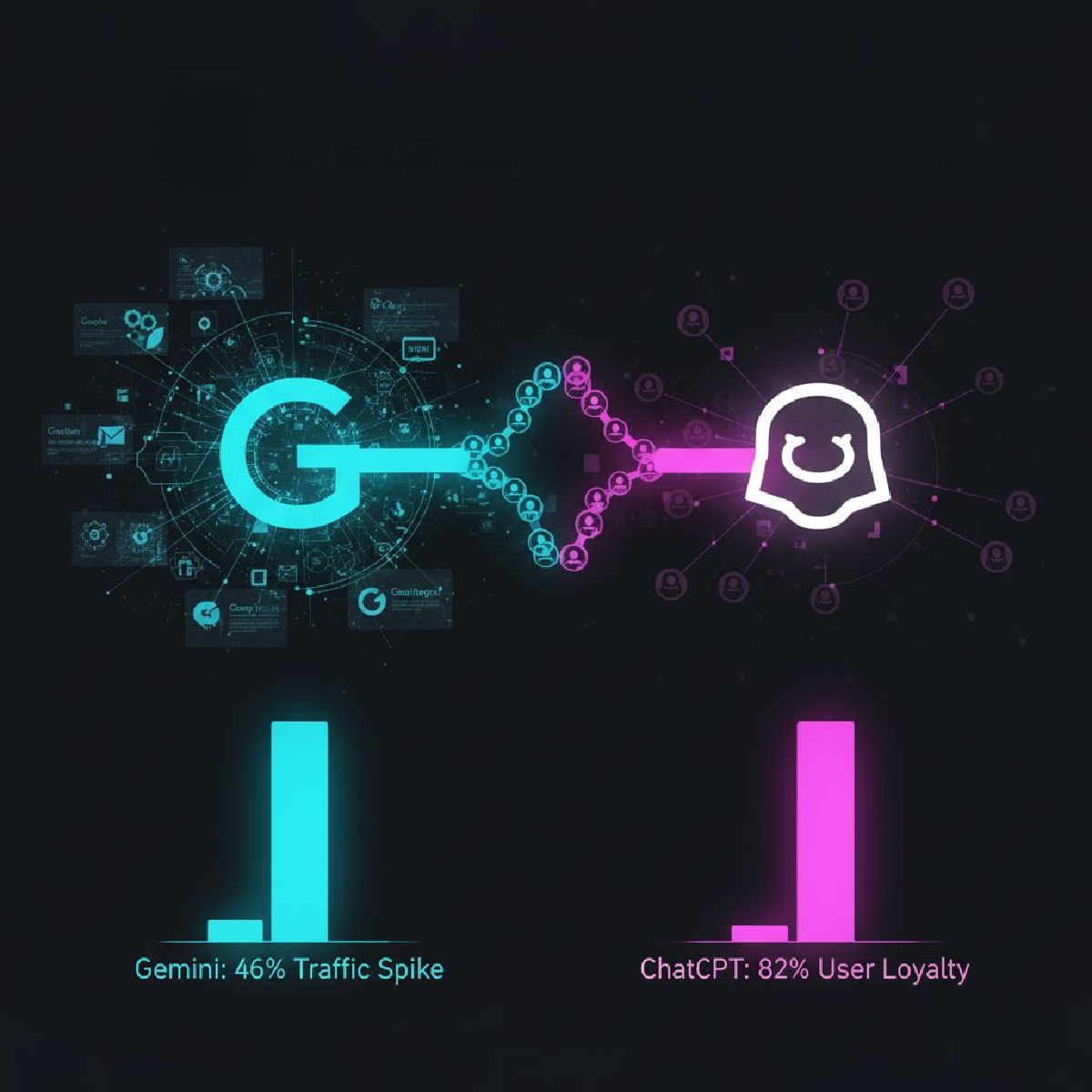Google’s Gemini just saw a 46% spike in traffic, gaining significant ground against ChatGPT. Impressive. Until you see the loyalty numbers.
ChatGPT users stick around: 82.2% use it exclusively. Gemini users? Only 49.1% are exclusive. Google’s winning the distribution war but losing the retention battle.
The Loyalty Paradox#
This is the more interesting story than raw traffic numbers. Google successfully attracts users through ecosystem integration. Search, Android, Chrome, Workspace. You’re already using Google products, Gemini is right there. Low friction means high trial rates.
But trial doesn’t equal commitment. Half of Gemini users also use other AI assistants. They’re multi-homing, comparing, keeping options open. ChatGPT users commit. When they choose OpenAI, they tend to stick with it.
That difference matters for long-term competitive dynamics. Distribution gets you users. Product quality keeps them. Right now, Google has the first. OpenAI has the second.
What the Numbers Actually Show#
Recent data reveals Gemini users actually spend longer per session: 7 minutes 37 seconds versus ChatGPT’s 6 minutes 27 seconds. So it’s not that Gemini is worse or users are dissatisfied. It’s that they’re treating it differently.
Gemini feels like part of Google’s ecosystem. You use it when you’re already in Search or Workspace. ChatGPT feels like a destination. You go there specifically for AI assistance.
Neither is wrong. But exclusive users generate more value and create stronger competitive moats. You can’t easily lose customers who aren’t comparing alternatives.
The Broader Competitive Landscape#
While Google and OpenAI dominate, everyone else is fighting for scraps. According to market share data: DeepSeek holds 3.9%, Perplexity 2.0%, Grok 2.0%, Claude 1.8%, Microsoft Copilot 1.2%.
Notably, Grok declined 7.4% in September, the only major platform to lose ground. That’s concerning for X’s AI ambitions. Being embedded in Twitter/X apparently isn’t enough for distribution advantage if the product doesn’t compel usage.
Claude’s 1.8% is particularly interesting. Anthropic has arguably the best model for thoughtful, nuanced responses. But distribution matters. Great product without reach limits growth.
What This Means Long-Term#
Google’s growth happens while major platforms like YouTube and Facebook see traffic declines. Gemini is bucking overall internet trends. That validates AI assistant demand even if loyalty remains challenged.
For Google, the question is how to convert trial into retention. Can ecosystem convenience overcome ChatGPT’s product loyalty? Maybe by making Gemini so integrated into workflows that switching becomes friction rather than convenience.
For OpenAI, the question is whether loyalty compensates for distribution disadvantage. 82% exclusive usage is powerful. But only if you can reach enough users to make that percentage meaningful.
The Real Competition#
This isn’t about who wins market share this quarter. It’s about who builds sustainable competitive advantage. Google has distribution. OpenAI has loyalty. Both matter.
The winner will be whoever figures out the other’s advantage first. If Google converts trial into commitment, their distribution advantage becomes insurmountable. If OpenAI cracks distribution, their loyalty advantage compounds.
Right now, we’re watching two different strategies play out. The outcome isn’t obvious.
Compare them yourself: Try both Gemini and ChatGPT to see which one you stick with.


